Tongue-Tie Care & Support
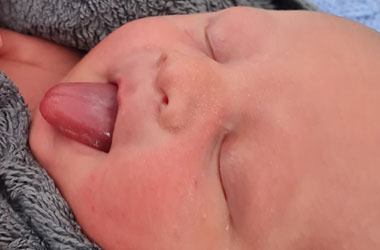
What is tongue-tie?
Before & after
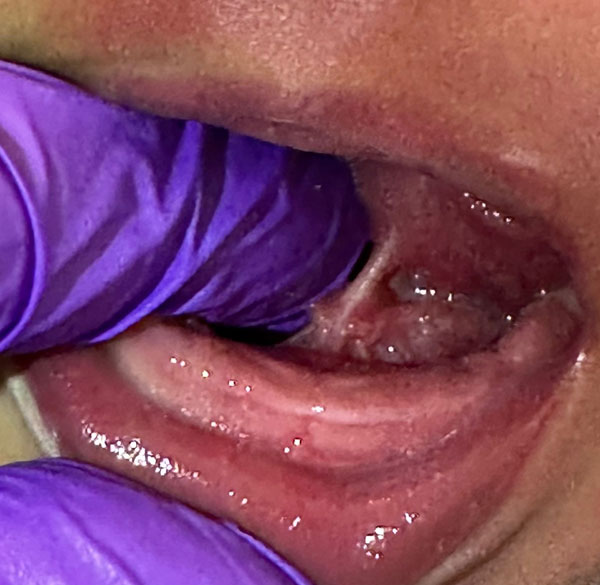
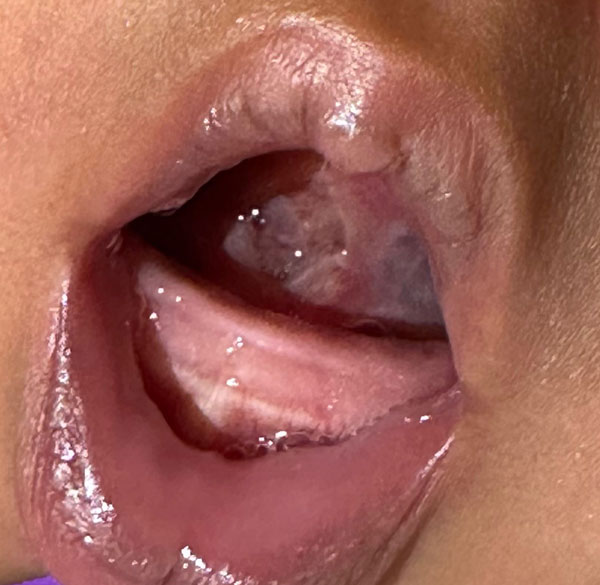
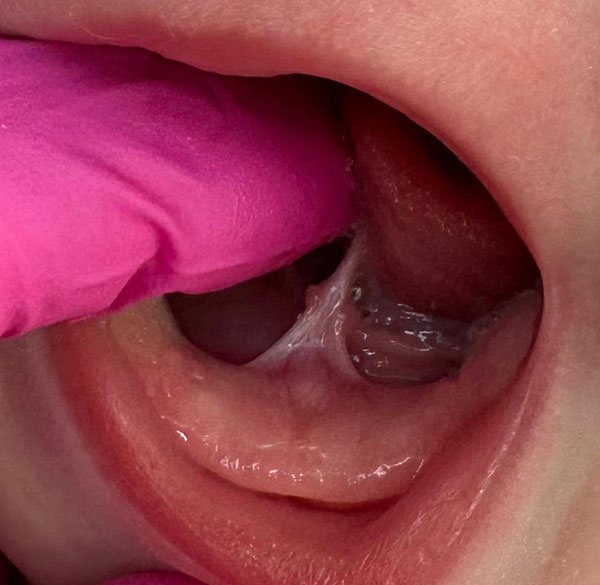
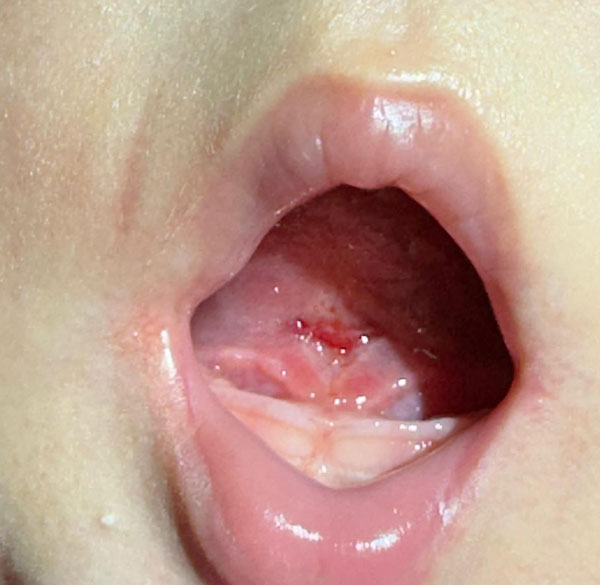
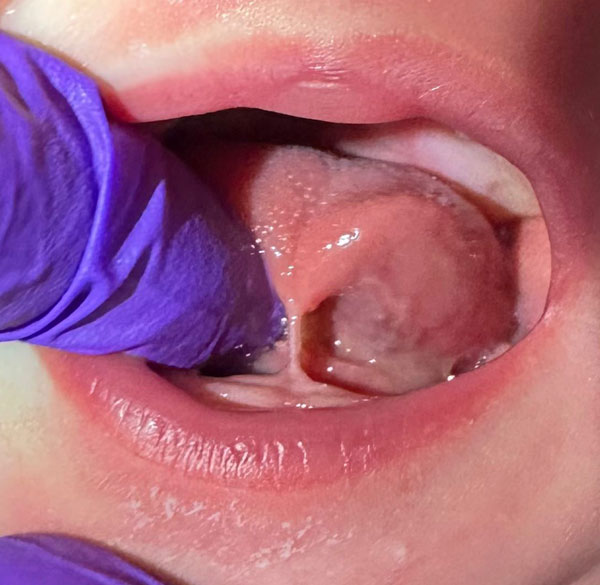
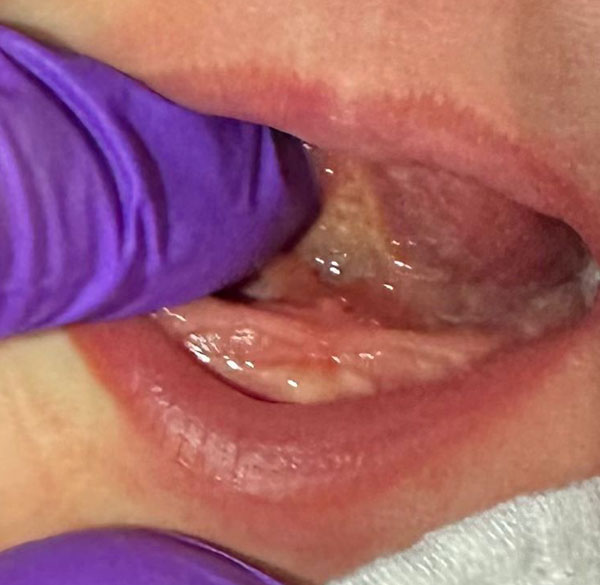
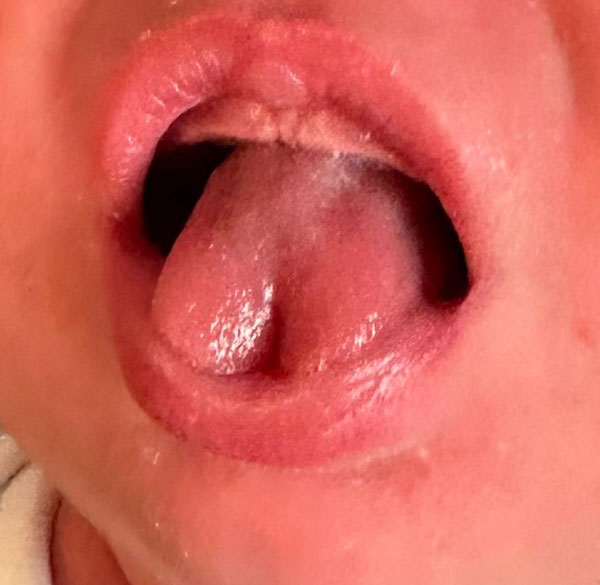
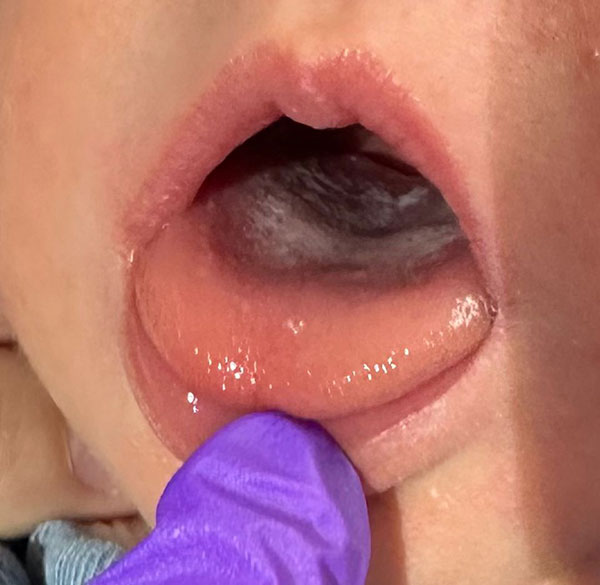
Tongue-tie care
As a qualified tongue-tie practitioner, I am able to identify if your baby might have any oral restrictions which could impact your feeding journey.
During your appointment I provide a full holistic assessment where I will discuss, review and consider all the factors from your pregnancy, your birth and what has happened throughout your feeding journey thus far. It is important to gain a full picture of all and any factors which may be impacting your baby’s ability to feed well.
I will perform an oral assessment and ask to observe you feeding your baby. With all this information I will be able to advise you on what is causing your feeding challenges.
I choose to be registered with the ATP (Association of Tongue Tie Practitioners).
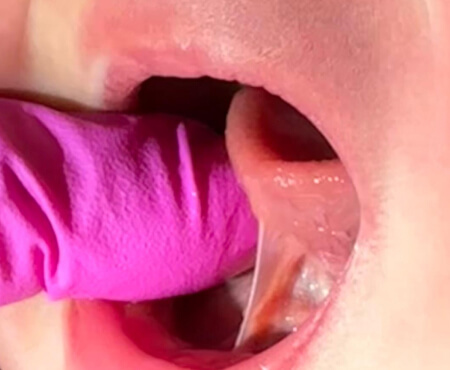
Does a tongue-tie affect all babies?
No. Not all tongue-ties cause problems – some babies have a visible frenulum but have excellent function and therefore do not need a release.
However, sometimes a tongue-tie can cause problems with both the function and appearance and therefore can cause feeding challenges both on the breast and bottle.
Signs to look for (but not exclusive to):
MUM
- Sore, damaged and misshapen nipples
- Pain during feeds that does not improve with positioning and attachment
- Re-occurring engorgement, mastitis, blocked ducts and blebs
- Low milk production or what appears to be an abundant milk production due to ineffective milk transfer
- Early introduction of formula milk or cessation of breastfeeding
- Exhaustion and anxiety from frequent, prolonged feeding
BABY: Breastfeeding
- Difficulty or inability to attach to the breast
- Frequent slipping off the breast
- Excessive weight loss / slow or static weight gain/drop in weight centiles
- Falling asleep before finishing a feed
- Prolonged, frequent or fussy feeding
- Unsettled between feeds
- Clicking noises / grinding / gumming / chewing of the nipple whilst feeding
- Symptoms of wind / colic / reflux
- Excessive dribbling
- Coughing or choking whilst feeding
BABY: Bottle feeding
- Prolonged bottle feeding
- Inability to create a seal around the teat leading to excessive dribbling
- Noisy, clicking, lip-smacking during each bottle feed
- Slow or no weight gain, or weight loss
- Symptoms of colic and / or reflux
- Early breastfeeding difficulties
When to seek help
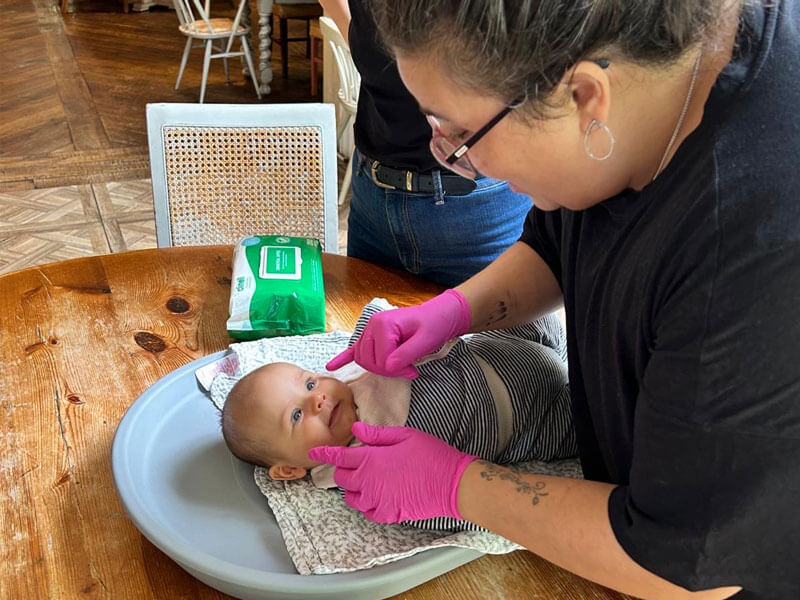
Assessment & diagnosis
Assessment and diagnosis considers a multitude of factors. As well as a detailed feeding assessment and observation of your baby’s feeding technique, your baby’s tongue will be assessed using an appropriate tool to ensure both function and appearance have been reviewed.
Making informed decisions
Treatment options
- Some families find that with conservative measures such and body work from a qualified osteopath or chiropractor and/or positioning, latch adjustments and targeted breastfeeding help their symptoms they are experiencing improve.
- Some families find that division/release (frenulotomy/frenectomy) improves their symptoms
What is a tongue-tie division (frenulotomy)?
This is a small surgical procedure where a cut is made to the lingual frenulum with a pair of scissors specifically designed for this purpose.
For division your baby will be wrapped snuggly in a large muslin or blanket (please provide this). Division is performed under direct visualisation with good lighting, the head will need to be supported, please ensure there is someone there to do this (you don’t have to watch if you don’t want to and you will be guided how to do this)
Tongue-tie surgery causes minimal discomfort for infants and is done without the need for anaesthesia. Some parents may choose to give paracetamol prior to the procedure if the baby is old enough for over-the-counter medication (8 weeks +).
Risks & aftercare
Areas I cover for tongue-tie support
I cover areas within 30-40 minutes of SE19. If you are unsure if this includes you then please message me before booking and I will get back to you ASAP.
Once you make a booking, I only hold that space for 24 hours so please make sure BOTH the booking form and payment are made within this timeframe.
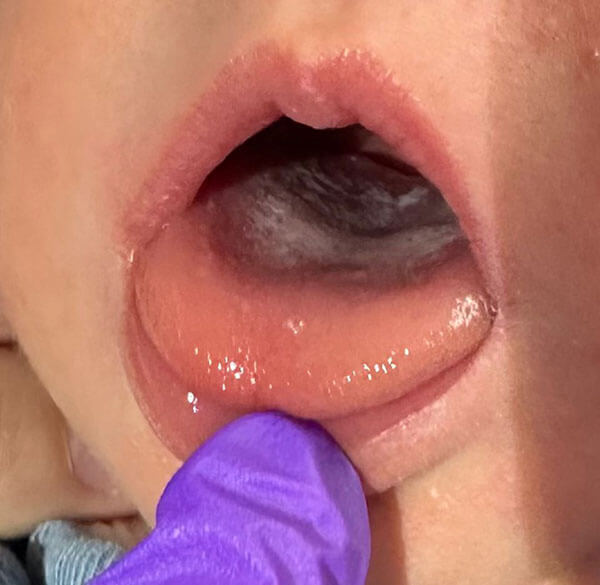

Home Visits
£350
Tongue tie assessment with feeding review and division (if indicated)
- Appointments usually take about 2-2.5 hours.
- If conservative measures are recommended initially but then division is indicated at a later date this will be included in the cost of the initial appointment, as long as this is within 3 weeks of the original appointment; after this an additional £150 will be payable.
- If you would like a home visit follow-up review, this cost = £150.
How to book
Follow the link below for my next available appointment:
Important Booking Information
- All bookings include a 20% non-refundable deposit to secure your appointment slot
- I only hold booking spaces for 24 hours - ensure both booking form and payment are completed within this timeframe
- Cancellation within 24 hours: 50% refund (less deposit)
- Cancellation with more than 24 hours notice: full refund (less deposit)
- For extenuating circumstances, please contact me to discuss options
Tongue-tie parent information
ABSTRACT
Tongue tie can be a mine field to navigate, and many midwives, Health visitors and Doctors have very limited knowledge, training or experience in this area. No wonder parents are left feeling confused!
Here is some information to give you a taste of what tongue-tie is about and what the common signs are for this.
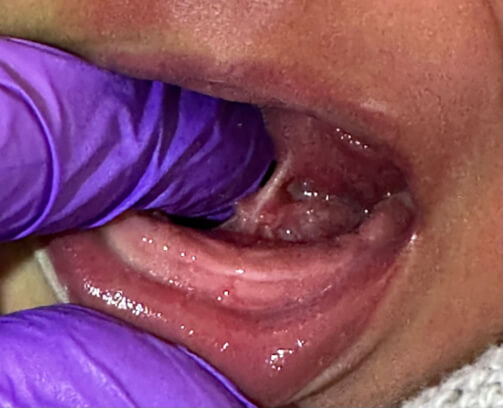
Testimonials
“Leonie is brilliant. I would highly recommend her.
Our son had a significant tongue-tie and she had to perform two cuts to help with his feeding. Leonie was so understanding about the implications of the tongue tie and the pain I was in whilst feeding him. She was efficient and explained every aspect of the procedures and what would happen, always being clear and thorough.
She was kind and caring and kept it all easy and light with her sense of humour.
She sent useful videos and followed up with messages to check up and was always accessible for any queries or support required.
In addition to this the follow up groups she provides were so helpful and supportive. The fact that she offers these at no extra charge is amazing and I doubt other practitioners do the same.
In the current situation where postnatal care is something to be desired, she made me as a mother feel supported, seen and heard. She made my postnatal experience much better and easier and I will be eternally grateful to her for it all.
Thank you Leonie.”
Maddie
“Leonie was amazing in helping with our little girl’s tongue-tie diagnosis and division.
We first saw Leonie at &osteo where she assessed our baby and talked us through all our options. We were initially undecided on how to proceed and seeing this Leonie kindly offered to follow up with a home visit in the event we decided to go ahead with the division. This allowed us the time to properly consider our options.
Leonie was super knowledgeable, kind and excellent with our little girl whilst she did the assessment, and subsequent division. She also helped put our minds at ease with some non tongue tie-related matters and provided tips on improving breastfeeding positions/latch.
Leonie’s after care was great, we couldn’t have asked for more. She was easily contactable via WhatsApp, and always answered our questions, however small.
We would 100% recommend Leonie to other parents.”
Lauren Stallard-Stephens
“Leonie was wonderful in helping with our baby’s tongue-tie diagnosis and division. Our son was struggling to latch and we’d been given differing advice on how to improve this by the hospital, so we booked a home visit with Leonie. Leonie was knowledgeable, kind and excellent with our son whilst she did the assessment. On diagnosing tongue tie, she then clearly talked us through our options and was very patient with all our questions as nervous first time parents.
Leonie’s after care was great: we had home visits and then her fortnightly follow up group sessions, as well as contact via WhatsApp. Throughout our engagement with Leonie we felt very looked after as a family and wouldn’t hesitate in rebooking her.”
Catherine Buckle
“We highly recommend Leonie. She is highly qualified and experienced and this shows in her work. While we had previously received unhelpful mixed messaging and speculative views from other professionals, Leonie was the only individual to complete a comprehensive and thorough assessment of any potential tongue-tie and explain in clear language her approach and findings. She also shared benchmarking indicators.
Her bedside manner and good humour make the experience of working with her all the more pleasant, peaceful, stress free and reassuring. She also offered us feeding advice and guidance in addition to other newborn insights. We are very grateful to her.”
Kayla Branson
“Leonie was incredibly supportive in relation to a suspected posterior tongue-tie for our newborn daughter, which was causing her weight to fluctuate. Leonie was an absolute pleasure to work with, and her expertise and guidance was truly invaluable in setting us on the right path to improve our daughter’s feeding and wellbeing.”
“We are so grateful to Leonie for all of her incredible help. Our son had a tongue-tie and trouble latching. I was in a lot of pain feeding and struggling mentally when we met. Leonie was amazing with the TT procedure and all the aftercare. She supported me and my partner above and beyond, with so many helpful tips and lots of great advice and guidance. I’m not sure I’d still be breastfeeding if it weren’t for all her help and care. She is wonderful and I’d recommend her to anyone going through any feeding challenges.”
Hilary Diar
